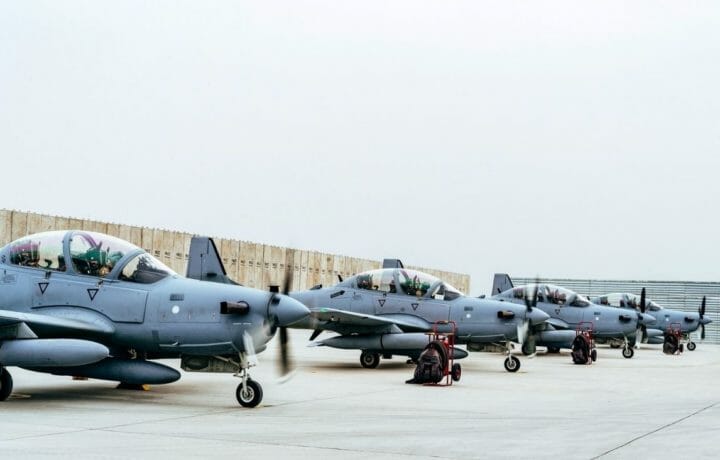by Jason Criss Howk and A. Rahman Rahmani
As the NATO coalition continues their military withdrawal, it will be more important than ever for the Afghan military to have a capable and growing Air Force. Time and again in the last few months the Taliban and other terrorist groups have been targeted with precision air strikes by Afghan and NATO aircraft. History tells us the need to retain the skills and increase the size of the Afghan Air Force will be a determining factor in the success of the government retaining the upper hand in their counterinsurgency and counterterrorism operations.
The current Afghan military policy about who is responsible for accidents during air strikes on enemy targets put the future of the Air Force at risk. Actually, it isn’t a policy at all. The lack of a clear policy in accidental civilian deaths during air support of the ANA means that pilots can be easily found guilty by default for mistakes made by the Army.
In most militaries, the responsibility during an air operation that claims the lives of civilians is placed on the ground force commander that called for the air support. This ensures that the commander closest to the target does everything possible to make sure they are correct in their target selection. It also ensures that they have done all they can to get civilians out of harm’s way. The air force commander in the aircraft is not punished or removed from their job if the ground commander gets it wrong.
In Afghanistan today, the air force commander piloting the aircraft is being held accountable for mistakes that an Army commander makes. In the short-term, this policy will eventually lead to fewer air force officers being willing to support army forces in combat, and that will make it easier for the Taliban to win battles. In the long-term, this policy will deplete the ranks of the Air Force as officers are punished for other’s mistakes, or leave the force altogether to avoid being blamed for the Army’s mistakes. Pilots have already been punished for accidental death cases. By just charging them with a possible crime and jailing them to await a long court case the Afghan government has driven off other pilots who will not risk that future.
This lack of clear policy is only going to cause more issues in the near future as NATO forces depart. The Special Operations forces and Air Forces will be even more active in 2021 and 2022 as the Pakistan backed terrorist groups try to hit the ANDSF as hard as possible to see if they will buckle.
To ensure the Air Force does not lose pilots, and that pilots do not hesitate to help the ANA win in battle, the Afghan government should immediately study and codify a just defense policy. The ANA, especially the Special Forces elements have the best reputation among the Afghan people. The Afghan people see them as protectors. When Civ-Cas events happen, and they will more frequently this year, the ANA can better absorb the blame for the mistakes. The loss of civilian life in war is inevitable, but still gut-wrenching for the families of those lost, and for the military member who accidentally kills them. Additionally, creating a clear policy will reduce air accidents and loss of aircraft. By putting more responsibility on the ground commander to get his information correct and issue precise requests to pilots, fewer aircraft will be sent into areas that are too high-risk to fly in.
The Taliban, with ISI urging, will use their formidable propaganda skills to paint the Air Force as uncaring and cruel after every accidental death. The Afghan government can prepare now to take away this propaganda tool from the Taliban by ensuring the ANA has complete ownership of civilian casualty events. The Army will be in the best position to prevent accidents and in the need arises to enact compensation and reconcile with the families of those killed. Staying ahead of this issue is critical if the young Afghan Air Forces are to continue to grow in size and reputation. This policy of course would not protect pilots who make a mistake and hit a target that was not asked of them by the ground forces. This refers only to events where the correct target was hit, but the ground commander was wrong in ordering the attack.




